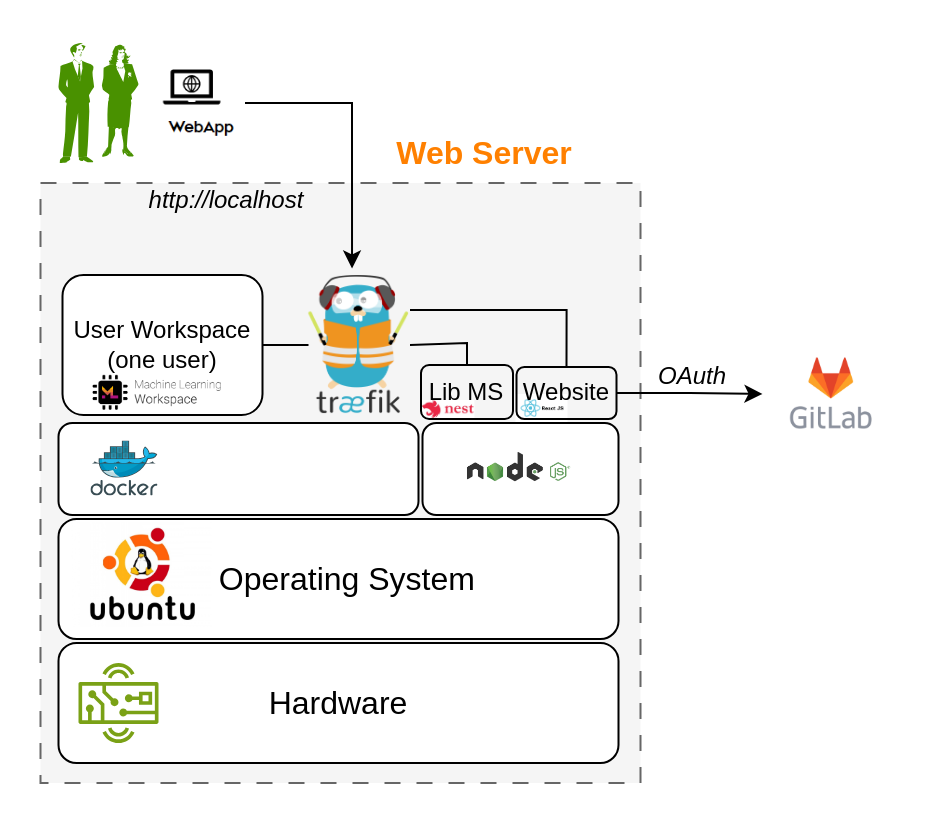Localhot Installation
To try out the software, you can install it on Ubuntu 22.04 Desktop Operating System. The setup requires a machine which can spare 4GB RAM, 2 vCPUs and 15GB Hard Disk space to a the DTaaS application. A successful installation will create a setup similar to the one shown in the figure.

A one-step installation script is provided on this page. This script sets up the DTaaS software for a single user. You can use it to check a test installation of the DTaaS software.
Pre-requisites
1. Gitlab OAuth application
The DTaaS react website requires Gitlab OAuth provider. If you need more help with this step, please see the Authorization page.
Information
It is sufficient to have user-owned oauth application. You can create this application in your gitlab account.
You need the following information from the Gitlab OAuth application registered on Gitlab:
| Gitlab Variable Name | Variable name in Client env.js | Default Value |
|---|---|---|
| OAuth Provider | REACT_APP_AUTH_AUTHORITY | https://gitlab.com or https://gitlab.foo.com |
| Application ID | REACT_APP_CLIENT_ID | |
| Callback URL | REACT_APP_REDIRECT_URI | http://localhost/Library |
| Scopes | REACT_APP_GITLAB_SCOPES | openid, profile, read_user, read_repository, api |
You can also see Gitlab help page for getting the Gitlab OAuth application details.
Install
Note
While installing you might encounter multiple dialogs asking, which services should be restarted. Just click OK to all of those.
Run the following commands.
The --env local argument is added to the script specifies localhost
as the installation scenario. The --username username uses your
Gitlab username to configure the DTaaS application.
Post install
After the single-install-script is successfully run. Please change Gitlab OAuth details in
Post-install Check
Now when you visit http://localhost, you should be able to login through Gitlab OAuth Provider and access the DTaas web UI.
If you can following along to see all the screenshots from user website. Everything is correctly setup.
References
Image sources: Ubuntu logo, Traefik logo, ml-workspace, nodejs, reactjs, nestjs